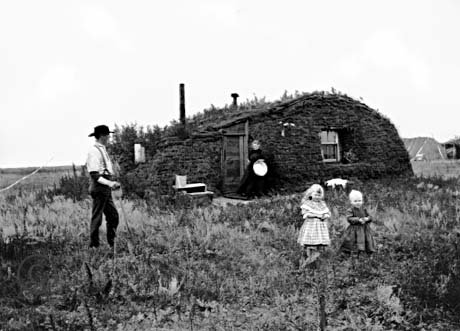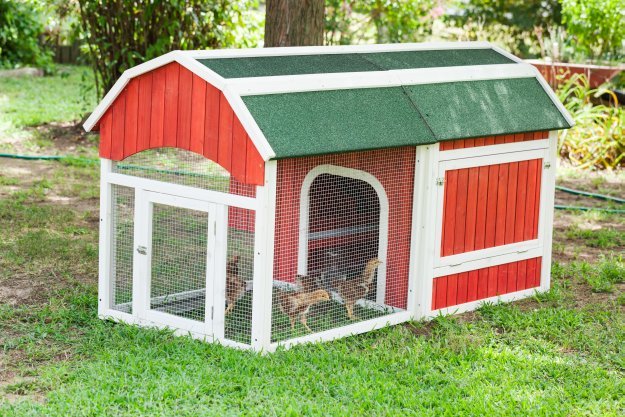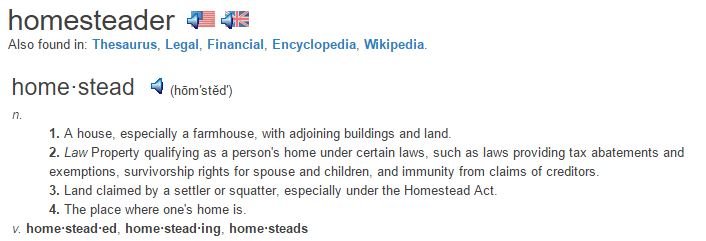
(Norwegian settlers in 1898 N. Dakota by their homestead, a sod hut)
What is homesteading? My first exposure to Homesteading came in the 1980’s from a TV series called “The Little House on the Prairie”. In the show, a family claimed a homestead and depicted life in a small agrarian community. In order to understand what the term means, we need to look back in history.
During the 19th century, much of the United States was unsettled. The U.S. government enacted several laws that gave an applicant ownership of land, typically at no cost. More than 270 million acres of public land was given away free to 1.6 million homesteaders. This was equal to about 10% of all land owned by the government. Most of the “homesteads” were west of the Mississippi River.
According to the National Park Services book "About the Homestead Act", most of the Homestead Acts required the applicant had to be the head of the household or at least twenty-one years old. They had to live on the designated land, build a home, make improvements, and farm it for a minimum of five years. The filing fee was eighteen dollars. Immigrants, farmers without their own land, single women, and former slaves could all qualify.
Homesteading has been around long before the United States enacted the “Homestead Acts”. In 1690, Philosopher John Locke published the Second Treatise of Government. Locke saw the "mixing of labour" with land as the source of ownership via homesteading. He writes: “Though the earth and all inferior creatures be common to all men, yet every man has a property in his own person. This nobody has any right to but himself. The labour of his body and the work of his hands, we may say, are properly his. Whatsoever, then, he removes out of the state that Nature hath provided and left it in, he hath mixed his labour with it, and joined to it something that is his own, and thereby makes it his property.”
The end of homesteading in the United States came in 1976. The Federal Land Policy and Management Act ended homesteading. The only exception to this new policy was in Alaska, for which the law allowed homesteading until 1986. According to the US National Park Service, the last claim under this Act was made by Ken Deardorff for 80 acres of land on the Stony River in southwestern Alaska. He didn’t receive his deed until May 1988. He is the last person to receive title to land claimed under the Homestead Acts.

Governments may have formally stopped the “legal” act of homesteading, but its ideals are far from dead. A small but resilient group of people still live a life style of self-sufficiency. I have decided to live the homesteader’s life as much as possible. Please join me as I share with you the life of the “Modern Homesteader” on Steemit. This blog will be focused on the following topics; Home remedies, self-defense, emergency preparedness, gardening, hunting and spiritual growth. In homesteading, I find dignity, financial independence and freedom. Do you have what it takes to be a “Modern Homesteader”?
Sources:
Locke, John (1689). The Two Treatises of Government, Bk II, Chap 25, Sect 27
"AMERICAN HISTORY The Homestead Act - Creating Prosperity in America"
"About the Homestead Act" - National Park Service.
"The Last Homesteader". National Park Service. 2006.
Images:
https://en.wikipedia.org/wiki/Homestead_principle
http://www.thefreedictionary.com/homesteader
June 24, 2015 By Homesteading https://homesteading.com/chicken-coops-raising-backyard-chickens/

Here in Baltimore there are thousands of abandoned houses. Same is true for other rust-belt cities like Philadelphia and Detroit. There are still various government programs to get these abandoned houses cheap. However my advice is to avoid government programs and just buy one!
That is good advice.. You can become an Urban Homesteader! lol
I'd avoid anything guberment like I would Aids.
They call it Government Aid for a reason.
lol.. point taken!
upvoted and followed
Thank you kindly, I did the same!
My G'Grandfather homesteaded.
one of my cousins still owns the old homeplace.
That is great! Maybe you could share a picture and their story some time! I followed you just in case :-) A lot of us history buffs like that kind of stuff.
Like this?

Sallie Mickey is my g'g(something) grand mother.
Doug McDonough, the guy who wrote this, is my cousin.
See, I knew you had something ! lol That is a great story.. and "all three wives were pregnant when they started the 330-mile move in covered wagons". What a miserable ride! I have been doing my family tree for about 15 years now. I love this kind of stuff. Thanks again for sharing.
Interesting and I followed ;)
Thank you Sir, I returned the favor!
You might like this book:
https://archive.org/details/KurtSaxonSurvivorVol.2
That is really interesting. Its knowledge like this that will help us survive when life takes a bad turn. I saved the link for reference material. Thank you kindly.
Good article.
Hello I too have taken up the art of homesteading. I call it art because it is not the norm anymore. Life has become too convenient you don't have to raise your own animals anymore, you don't need to grow your own food, make your own clothes etc. It can all be purchased at a store. Life has become reasonably easy. I hope to learn many new things as i start this new journey and I will be reading your future posts Thanks for sharing.
Upvoted and followed 👍🏻